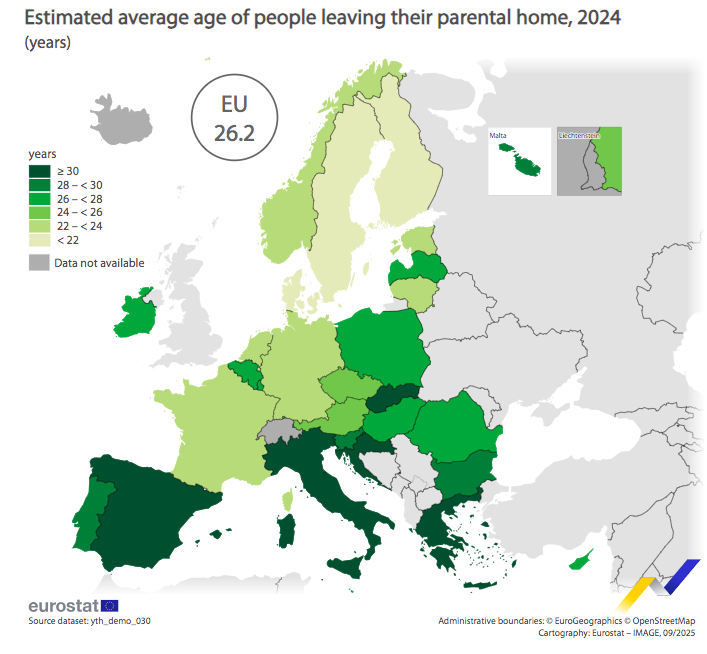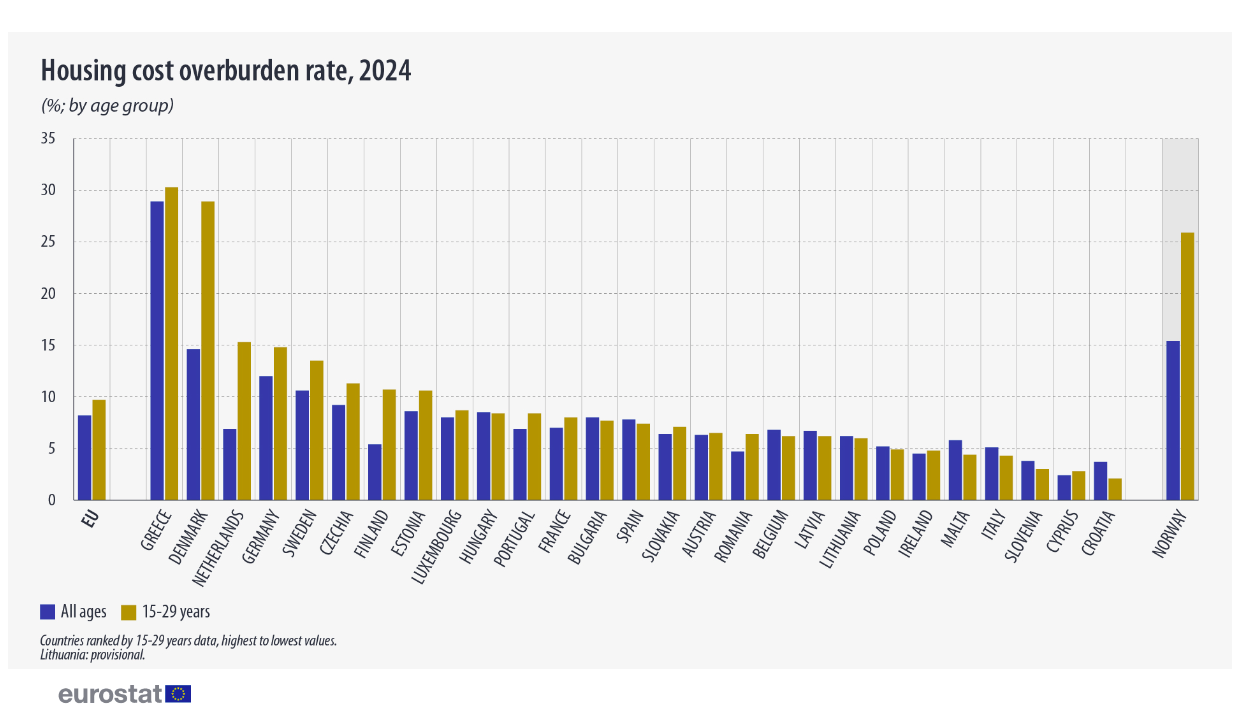Greece (30.3%) along with Denmark (28.9%) recorded the highest rates in the housing cost overburden indicator, significantly exceeding those of the Netherlands (15.3%), Germany (14.8%), and Sweden (13.5%). In contrast, Croatia (2.1%), Cyprus (2.8%), and Slovenia (3.0%) reported the lowest rates.
The housing cost overburden indicator includes households that spend 40% or more of their disposable income on housing.
In 2024, 30.3% of young people aged 15 to 29 lived in households spending 40% or more of their disposable income on housing, a rate significantly higher than the EU population average of 8.2%.

In 16 EU countries, young people face a greater financial burden for housing compared to the general population. The largest difference is observed in Denmark, with a gap of 14.3 percentage points, followed by the Netherlands with 8.4 percentage points.
Nevertheless, the countries where young people move out of their parental homes earlier include Denmark, the Netherlands, Germany, Sweden, and Finland — all of which report excessive housing costs for young individuals. Conversely, in countries where leaving the family home occurs later, such as Cyprus, Croatia, and Italy, the percentages are lower, with the exception of Greece, where young people continue to bear a significant financial burden for housing.
















